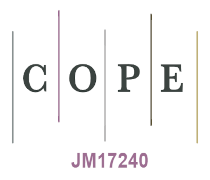Review of the theories of social approval
DOI:
https://doi.org/10.18778/1427-969X.17.01Keywords:
social approval, social desirability, need of social approval, theories of social approval, questionnaires to measure social approvalAbstract
The aim of this review is to present the most important theories of social approval. There are one-factor and two-factor theories of social approval distinguished. The most important among one-factor theories are: Edwards and Crowne–Marlowe models of social approval, and among two-factor theories are: Wiggins, Damarin and Messick, Sackeim and Gur, and Paulhus. There are also presented questionnaires based on theories mentioned above, which are used to measure the need of social approval: the Edwards Social Desirability Scale, the Marlowe–Crowne Social Desirability Scale, the Self-Deception Questionnaire and the Other-Deception Questionnaire created by Sackeim and Gur, and the Balanced Inventory of Desirable Responding (BIDR) designed by Paulhus, which consists of two subscales: Self-Deceptive Enhancement and Impression Management.
References
Adelt, J., Kranas, G. (1978). Zmienna aprobaty społecznej Edwardsa. [W:] L. Wołoszynowa (red.), Materiały do nauczania psychologii. Metody badań psychologicznych: ser. III, t. 3 (s. 225–240). Warszawa: Państwowe Wydawnictwo Naukowe.
Google Scholar
Crowne, D.P., Marlowe, D. (1960). A new scale of social desirability independent of psychopathology. Journal of Consulting Psychology, 24 (4), 349–354.
Google Scholar
Edwards, L.A. (1953). The relationship between the judged desirability of a trait and the probability that the trait will be endorsed. The Journal of Applied Psychology, 37 (2), 90–93.
Google Scholar
Edwards, L.A. (1957). Social desirability variable in personality assessment and research. New York: Dryden.
Google Scholar
Edwards, L.A., Walsh, J.A. (1963). The relationship between the intensity of the social desirability keying of a scale and the correlation of the scale with Edward’s SD Scale and the first factor loading of the scale. Journal of Clinical Psychology, 19 (2), 200–203.
Google Scholar
Izdebski, P. (2007). Psychologiczne aspekty przebiegu choroby nowotworowej piersi. Bydgoszcz: Wydawnictwo Uniwersytetu Kazimierza Wielkiego w Bydgoszczy.
Google Scholar
Korzeniowski, K. (1980). Osobowościowe przesłanki spostrzegania osób jako wartości autonomicznej. Nieopublikowana praca doktorska. Warszawa: Instytut Psychologii, Uniwersytet Warszawski.
Google Scholar
Marlowe, D., Crowne, D.P. (1961). Social desirability and response to perceived situational demands. Journal of Consulting Psychology, 25 (2), 109–115.
Google Scholar
Meston, C.M., Heiman, J.R., Trapnell, P.D., Paulhus, D.L. (1998). Socially desirable responding and sexuality self-reports. The Journal of Sex Research, 35 (2), 148–157
Google Scholar
Paulhus, D.L. (1984). Two-component models of socially desirable responding. Journal of Personality and Social Psychology, 46 (3), 598–609.
Google Scholar
Paulhus, D.L. (1991). Measurement and control of response bias. [W:] J.P. Robinson, P. Shaver, L.S. Wrightsman (red.), Measures of personality and social psychological attitudes (s. 17–59). San Diego: Academic Press.
Google Scholar
Paulhus, D.L. (2002). Socially desirable responding: the evolution of a construct. [W:] H.I. Braun, D.N. Jackson, D.E. Wiley (red.), The role of constructs in psychological and educational measurement (s. 49–69). Mahwah NJ: Lawrence Erlbaum.
Google Scholar
Paulhus, D.L., John, O.P. (1998). Egoistic and moralistic biases in self-perception: the interplay of self-deceptive styles with basic traits and motives. Journal of Personality, 66 (6), 1025–1060.
Google Scholar
Paulhus, D.L., Reid, D.B. (1991). Enhancement and denial in socially desirable responding. Journal of Personality and Social Psychology, 60 (2), 307–317.
Google Scholar
Strzałkowska, A. (1993). Potrzeba aprobaty społecznej (teoria Crowne’a i Marlowe’a). [W:] T. Szustrowa (red.), Osobowość jako przedmiot diagnozy psychologicznej (s. 149–157). Warszawa: Wydawnictwo Uniwersytetu Warszawskiego.
Google Scholar
Sullivan, B.F., Scandell, D.J. (2003). Psychological needs and response bias: an examination of Paulhus and John’s reformulation. North American Journal of Psychology, 5 (2), 279–288.
Google Scholar
Wiggins, J.S. (1964). Convergences among stylistic response measures from objective personality tests. Educational and Psychological Measurement, 24, 554–562.
Google Scholar
Zalewska, A.M. (2006). Związki pomiędzy potrzebą aprobaty społecznej a zadowoleniem z pracy w badaniach anonimowych. Roczniki Psychologiczne, 9 (2), 29–44.
Google Scholar
Downloads
Published
How to Cite
Issue
Section
License

This work is licensed under a Creative Commons Attribution-NonCommercial-NoDerivatives 4.0 International License.








